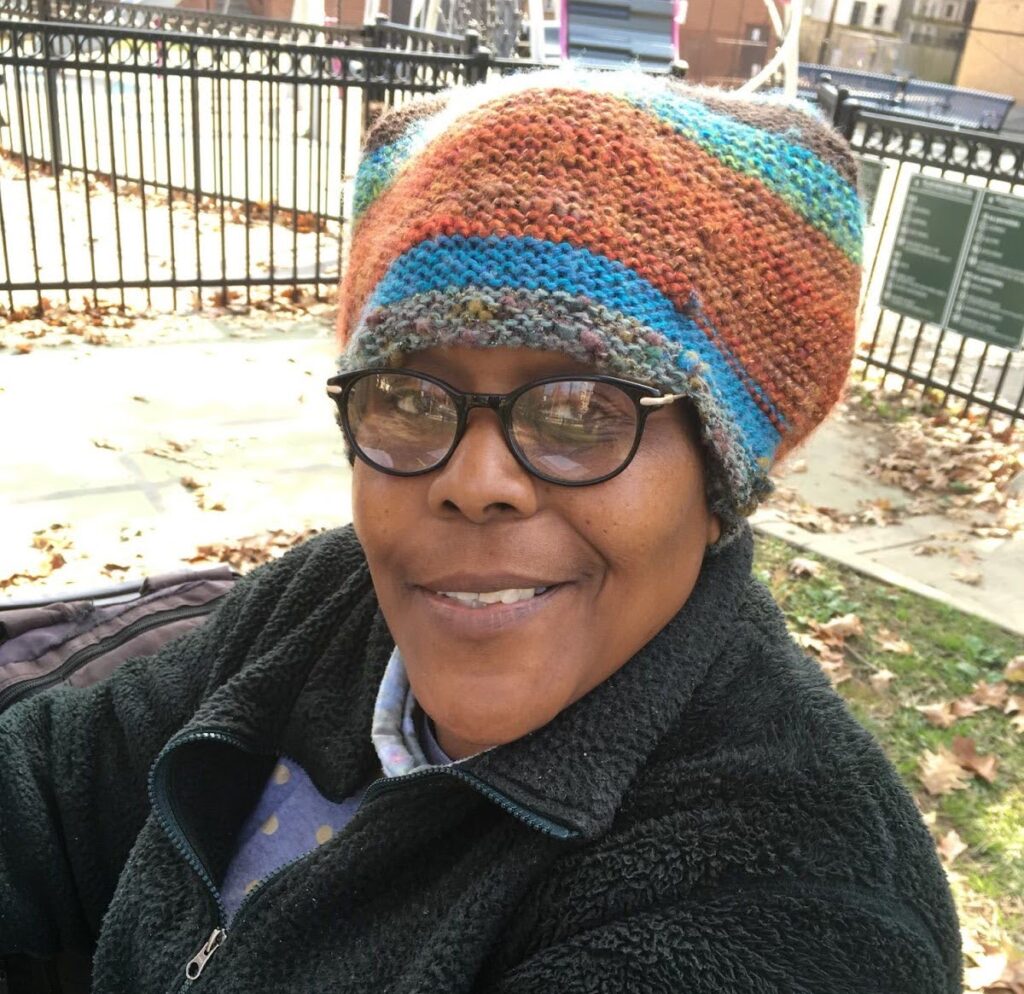A group of Warsaw’s homeless and unemployed residents, including several vendors of the city’s street paper WSPAK, have been given the chance to step into the spotlight through a new theater project.
The drama workshop program for the city’s homeless residents was started by Gregory Bands, a student of the Pedagogium School of Social Sciences. Bands enlisted the help of actress Mariola Daszkiewicz-Konopczyńska for help in directing a workshop production.
And the actors have a script, courtesy of Pedagogium teacher Maria Lewandowska . The play is a study of the relationships between homeless people – including those performing the play.
Every Wednesday at 2 p.m. cast members meet in a rehearsal room at the academy. They start off by exchanging pleasantries, hugs, stories of what happened in the past week before asking: “what are we going to do today?” Recently, they also paused for an interview with Street News Service.
Konrad: I do not like how most people talk about people who are homeless; they say we are that dirty, ragged and smelly excuse. Homelessness can happen to anyone, for various reasons. I was an electronics engineer by education but I lost my job and could not afford to keep on the house I inherited from my parents. I lived with my younger sister, but it could not last forever. Now I live in a shelter. Like everyone here, I want to show people who I really am – what I can offer, what I love, what my problems are, what I want to achieve in life.
Rysiek: Participating in the show is a new challenge for me. I thought – just go along, because the risk is either I gain experience as an actor or completely embarrass myself. And what the heck – go crazy! Every man has a different story, but I believe that ours in particular can create amazing material and will be interesting for audiences who have no knowledge of living on the streets.
Hedwig: What I want to say about the show is the love it builds. But I also want to talk about the fact that women and children are often left without help. They have no options. I was a teacher, but now I have no work. Employers are wary because I live in a centre for the homeless.
Martin: Why am I here? I would like to try something new – I enjoy a challenge and so grabbed this opportunity by the throat, as they say. I think this show is a cool thing, and helps to escape from everyday life. I’m a man with a sense of humour, but once in a while I do find life painful. I truly hope audiences will connect with my character and the situation he is in.
Stanislav: I’m an amateur musician. I’m not schooled in music, but I play a lot of instruments. I’m not homeless but I sell WZPAK because I have diabetes, and it makes it hard to find work.
For their first stage performance, the action takes place in a homeless shelter and is interspersed monologues of the actors. During the show the actress Hedwig leaves the stage, running and screaming through the audience: “I’m in a halfway house after a divorce from my husband, but no court helped me, and I have no money! My children are in the orphanage because I have no place to live with them! Let me ask children because you did not have grounds to limit my parental rights? After an accident at work I did not get a pension, and we wander through the world for 10 years!“
No one is responsible. No one is able to help her. Other characters on the show line for soup the great garage, arguing about the little things that get them down. Finally, they come up with an idea – a revolt! “Mutiny on the ship! Guards close at the deck, cook attached to the mast! “- Exclaims the actor. “Oh, yes! Chef to the mast! “- echoe the rest. The show interspersed humour and sadness, hopelessness and a sense of strength, optimism and a sense of defeat. It’s a play about people whose lives at some point are very tangled, but believe that this transition state.
The last scene of the play is so far unknown, mirroring the fate of homeless actors…
Marzena Kaminska, a psychologist, works in a shelter for homeless men run by the Archdiocese of Warsaw. She says that direct participation of socially excluded people in artistic projects is beneficial on many levels. Through art they have an opportunity to express themselves and often act out repressed emotions and learn new ways of coping. The experience can be a form of “catharsis” that lets them view at their situation from an outside perspective. In the daily struggle for their basic needs, this is something many homeless are not at able to achieve. For some, their presence on stage may be an opportunity to fulfill a dream or a hidden sense of “mission”; a chance to do something important, not only for themselves.
Director Mariola Daszkiewicz Konopczyńska sums up the show in the following way:
“On stage in Pedagogium we see a group of people with different experiences. Each of the participants in our theatre can and want to express themselves, with no opportunity to work hey have instead chose to work on themselves, their role on stage, and consider their role in the community. This all means that we have a team who share a common goal. It doesn’t matter whether you’re homeless or unemployed. Here, our theatre, our live show has become a community, the result was a joint responsibility and required people to work together – as it can happen on the stage, it can in real life too.”
Translated from Polish into English by Katarzyna Fugat








